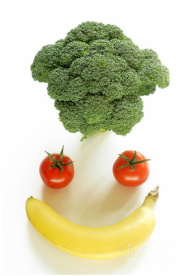 Good nutrition isn't just important for the health of our bodies but essential for our mental health. With the news this week that childline has been inundated with anxiety calls as children express fears over global events, its more important than ever that we understand mental health and the role of nutrition both for ourselves and the next generation. Stress and anxiety play a crucial role in health and can have long term effects and influence the course of a chronic illness. (https://www.ncbi.nlm.nih.gov/pmc/articles/PMC2568977/) I work on a holistic basis meaning I view the entire body as interconnected and can only be viewed as whole rather than just one part. When I look at someone's health, I take into consideration mental and social factors not just the symptoms a person may be expressing. Recent evidence shows that food plays an extremely important role in the development and prevention of specific mental health problems such as depression, ADHD, schizophrenia, and Alzheimer’s disease. Nearly every chemical that controls the brain has been identified in the gastro-intestinal tract. Interesting? Scary? We really are what we eat... NUTRIENTS TO HELP IMPROVE MOOD: IRON: Lack of iron in the diet can leave us feeling tired and lethargic and increases the risk of anaemia. Include a good supply of iron rich foods such as red meat, poultry, fish, tofu, lentils and pumpkin seeds. Avoid drinking tea with meals and try and include a vitamin C rich source of food (e.g. broccoli, oranges and strawberries) alongside meals to help increase absorption of iron. OMEGA 3: Omega 3 from fish has been studied in terms of the positive effects on mood and lowering the risk of depression. Fish highest in omega 3 include salmon, sardines, mackerel and herring. SELENIUM: Too little selenium in the diet may leave us feeling depressed or low. Brazil nuts, legumes, lean meat, seafood, seeds and wholemeal bread are good sources of selenium. VITAMIN D: More and more we are learning about how crucial this vitamin is to our mental health and well being. Our body is able to synthesise vitamin D from exposure to the sun but for the majority of people living in Northern Europe, this isn’t always possible year-round. A few foods contain vitamin D so good to include in your regular diet: fatty fish such as salmon, tuna and mackerel; eggs and beef liver are the highest sources. B VITAMINS: Lack of B vitamins can result in irritability, tiredness and feelings of depressed mood. The B vitamins are crucial in how energy is produced in the body and can be found in a wide variety of foods. Folic acid (folate) and vitamin B12 are particularly important for older adults in preventing mood disorders and dementias and can be found in liver, green leafy vegetables, citrus fruits, broccoli and beans. TRYPTOPHAN: Although research is on-going into the effects of this amino acid, it is known that tryptophan helps make serotonin (‘the happy hormone’). So including it in your diet is certainly a good idea. Food rich in this include bananas, walnuts, brown rice, sunflower seeds and animal protein rich foods such as turkey, eggs, chicken and fish. FOODS THAT CAN GIVE YOU A LOW: ALCOHOL: It might seem strange but alcohol is a depressant and can result in lowering your mood. SUGAR: Sugar and refined foods tends to cause an initial ‘high’ which we find pleasurable. However, that soon wears off as the body increases its insulin production, leaving you feeling tired and low. CAFFEINE: Although caffeine is known to give us energy bursts, caffeine raises Cortisol levels in the body (known as the stress hormone). Best avoided if you are feeling under stress anyway. LIFESTYLE: Don't underestimate the power of a few lifestyle changes which can make all the difference to mood and anxiety. Exercise is well known for its stress relieving abilities. It doesn't have to be high intensity running or exercise classes if that isn't your thing. Yoga, pilates even just taking a walk in the park can do immense good. Finding an activity which you find relaxing - gardening, cooking, reading the paper whatever it is find your 'thing' and enjoy it! Lastly, for those of you who want to try something new. A technique known as 'earthing' or 'grounding' where quite literally a person takes time to reconnect with the Earths surface electrons by walking barefoot outside. This advocates a general feeling of well being and even reports of physiological changes including reducing pain, stress and improving sleep. Sound a bit woo-woo? What have you got to lose - plus there is actual scientific research behind this: https://www.ncbi.nlm.nih.gov/pmc/articles/PMC3265077/ https://www.ncbi.nlm.nih.gov/pmc/articles/PMC4378297/ SOURCES: Diet and Mental Health (2015) Available at: http://www.mentalhealth.org.uk/help-information/mental-health-a-z/D/diet/ Food and Mood (2014) Available at: https://www.bda.uk.com/foodfacts/foodmood.pdf
2 Comments
|
AuthorLouise Cullen Archives
October 2020
Categories
All
|
 RSS Feed
RSS Feed
